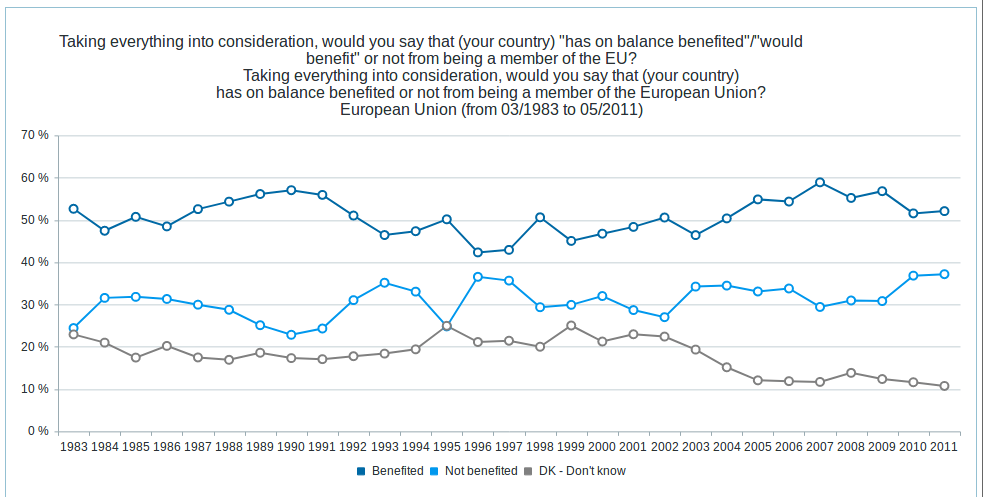It hasn't risen much.
The Eurobarometer Interactive search system allows users to create line trends of survey questions over time. One such question is:
Taking everything into consideration, would you say that (your country) "has on balance benefited"/"would benefit" or not from being a member of the EU?
Taking everything into consideration, would you say that (your country) has on balance benefited or not from being a member of the European Union?
European Union (from 03/1983 to 05/2011)

Source: Eurobarometer
The data as visualised lack uncertainty bars, and to measure whether there is a statistically significant trend would take more work. However, at first glance, there does not appear to be a strong trend overall. The only partial trend that appears clearly visible, is the drop in the number of people who answer "Don't know" since 2000.
The data are only going up to 2011. It may be that the past 7 years have seen a sharp rise in Euroscepiticism, but I am not sure if there is evidence for such either. One more recent data point is a Dutch survey on Brexit and Nexit, which states that in 2016, 43% of surveyed people supported a Dutch exit, whereas in 2018, this had dropped to 30%. Among supporters of the Dutch Socialist Party, support for exit dropped from 52% to 20%. Only among the populist right supporters is there still a majority for Nexit. Support for populist (far) right (nationalist/conservative) parties in The Netherlands have been mostly constant in the past 16 years.
Some graphs for specific countries:
Sweden, a clear increase in support for the EU:
Greece, a clear decrease in support for the EU:
I would speculate that the Greek drop in support is due to the Greek government-debt crisis.

